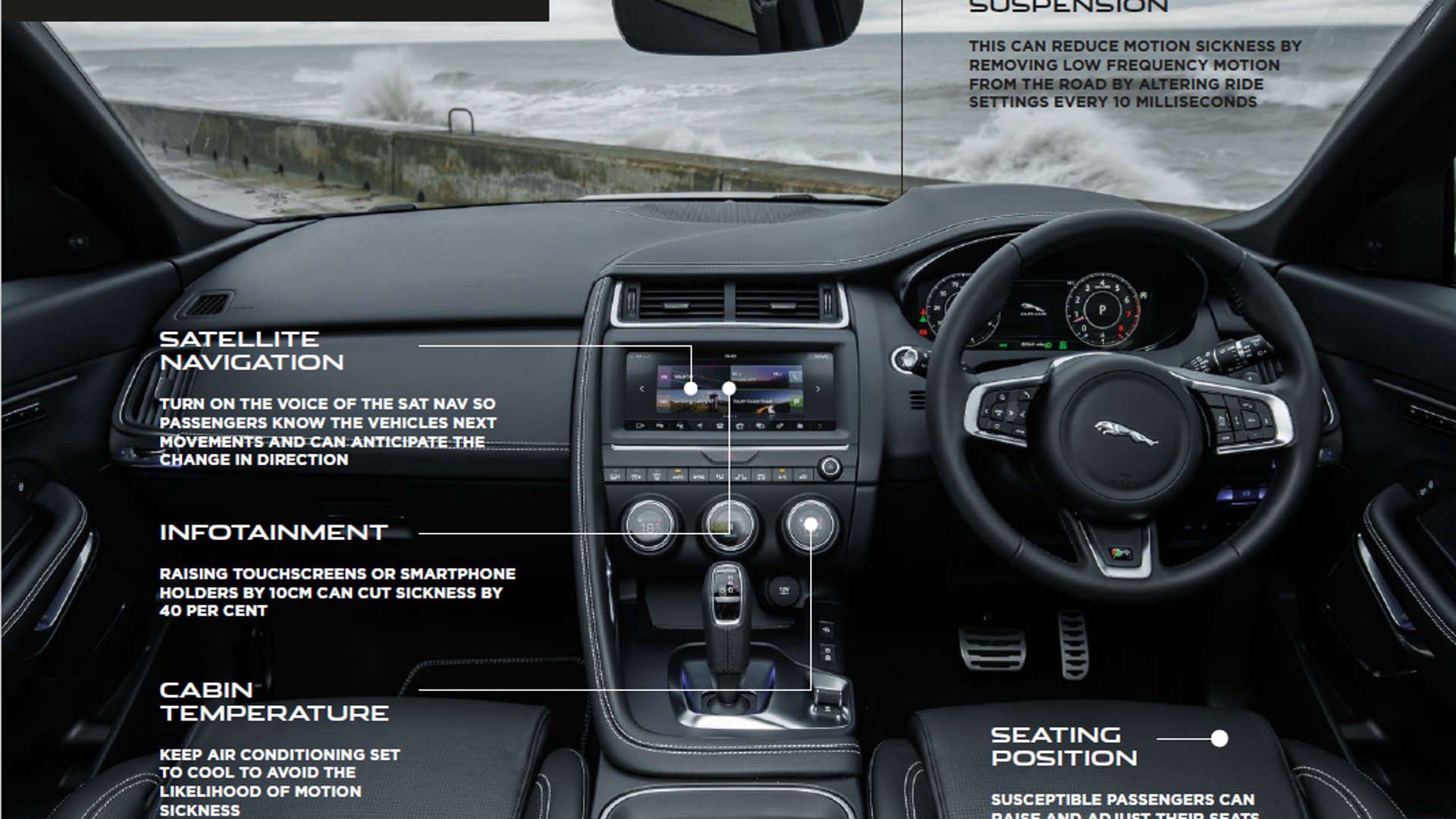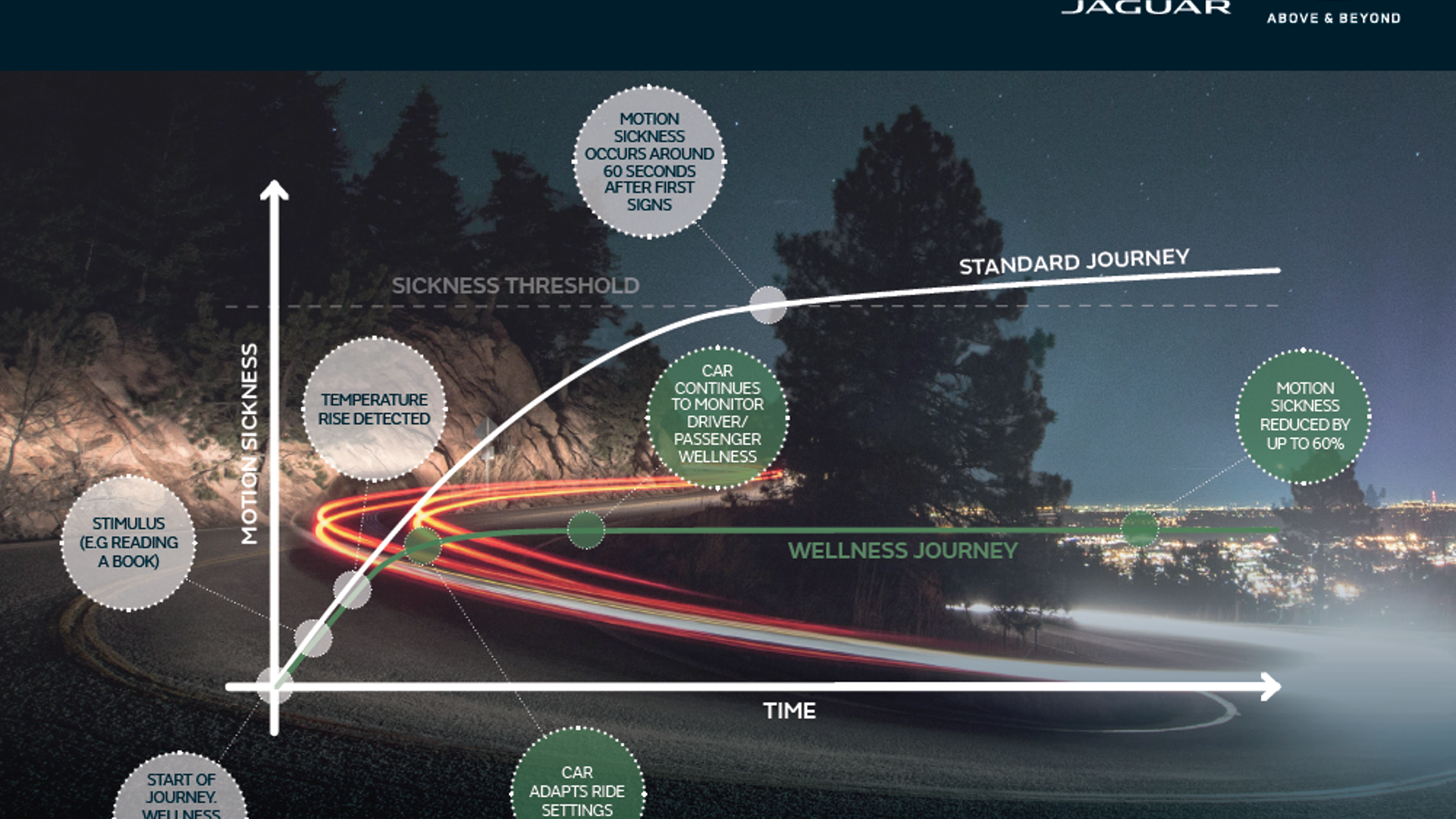Jaguar Land Rover's future autonomous vehicles will be able to tell if passengers are experiencing motion sickness and then adjust cabin conditions and driving style to reduce feelings of car sickness by up to 60 percent.
The British automaker says that while little was known historically about what causes motion sickness and how to combat it, its recent research has led to a computer algorithm that will allow the car to monitor the condition of each person in the cabin and generate a "wellness score" and make any necessary adjustments.
JLR says its wellness score figures out how susceptible each person in the car is to motion sickness using biometric sensors and that its self-driving cars will know when someone is becoming motion sick before they do.
As JLR explains, motion sickness is often caused by a disconnect between what a passenger's eyes see and the rest of their body feels, which occurs when a person riding in a vehicle performs a task like reading a book or looking at a smartphone or tablet.
Through 15,000 miles of on-road testing on the effects of performing tasks while travelling, the company says it has determined the driving style its vehicles must achieve to minimize motion sickness, focusing on minimizing steering corrections.
Jaguar Land Rover says it completed its first round of research last month, and those findings will inform future projects related to motion sickness.


